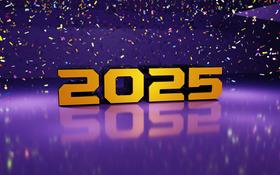For the 2025-26 school year, there are 5 public schools serving 2,778 students in 03063, NH (there are , serving 183 private students). 94% of all K-12 students in 03063, NH are educated in public schools (compared to the NH state average of 84%).
The top ranked public schools in 03063, NH are Academy For Science And Design Charter (H), Academy For Science And Design Charter (M) and Broad Street Elementary School. Overall testing rank is based on a school's combined math and reading proficiency test score ranking.
Public schools in zipcode 03063 have an average math proficiency score of 55% (versus the New Hampshire public school average of 42%), and reading proficiency score of 63% (versus the 51% statewide average). Schools in 03063, NH have an average ranking of 8/10, which is in the top 30% of New Hampshire public schools.
Minority enrollment is 48% of the student body (majority Hispanic), which is more than the New Hampshire public school average of 18% (majority Hispanic).
Best 03063, NH Public Schools (2025-26)
School
(Math and Reading Proficiency)
(Math and Reading Proficiency)
Location
Quick Facts
Rank: #11.
Academy For Science And Design Charter (H)
Charter School
(Math: 80-89% | Reading: ≥90%)
Rank:
Rank:
10/
Top 1%10
9 Townsend West
Nashua, NH 03063
(603) 595-4705
Nashua, NH 03063
(603) 595-4705
Gr: 9-12 | 236 students Student-teacher ratio: 17:1 Minority enrollment: 44%
Rank: #22.
Academy For Science And Design Charter (M)
Charter School
(Math: 77% | Reading: 81%)
Rank:
Rank:
10/
Top 5%10
9 Townsend West
Nashua, NH 03063
(603) 595-4705
Nashua, NH 03063
(603) 595-4705
Gr: 5-8 | 404 students Student-teacher ratio: 20:1 Minority enrollment: 64%
Rank: #33.
Broad Street Elementary School
(Math: 45-49% | Reading: 50-54%)
Rank:
Rank:
7/
Top 50%10
390 Broad St.
Nashua, NH 03063
(603) 966-1880
Nashua, NH 03063
(603) 966-1880
Gr: K-5 | 243 students Student-teacher ratio: 11:1 Minority enrollment: 37%
Rank: #44.
Birch Hill Elementary School
(Math: 50-54% | Reading: 40-44%)
Rank:
Rank:
6/
Top 50%10
17 Birch Hill Dr.
Nashua, NH 03063
(603) 966-1820
Nashua, NH 03063
(603) 966-1820
Gr: K-5 | 316 students Student-teacher ratio: 10:1 Minority enrollment: 38%
Rank: #55.
Nashua High School North
(Math: 26% | Reading: 57%)
Rank:
Rank:
5/
Bottom 50%10
8 Titan Way
Nashua, NH 03063
(603) 966-2500
Nashua, NH 03063
(603) 966-2500
Gr: 9-12 | 1,579 student Student-teacher ratio: 11:1 Minority enrollment: 49%
03063, New Hampshire Public Schools (Closed)
School
Location
Quick Facts
440 Amherst St
Nashua, NH 03063
(603) 594-4326
Nashua, NH 03063
(603) 594-4326
Gr: 9-10
Frequently Asked Questions
What are the top ranked public schools in 03063, NH?
The top ranked public schools in 03063, NH include Academy For Science And Design Charter (H), Academy For Science And Design Charter (M) and Broad Street Elementary School.
How many public schools are located in 03063?
5 public schools are located in 03063.
What percentage of students in 03063 go to public school?
94% of all K-12 students in 03063 are educated in public schools (compared to the NH state average of 84%).
What is the racial composition of students in 03063?
03063 public schools minority enrollment is 48% of the student body (majority Hispanic), which is more than the New Hampshire public schools average of 18% (majority Hispanic).
Recent Articles

Texas Schools Enrollment Trends & Policy in 2025
Latest data and policy changes on Texas public school enrollment growth, funding, and virtual education in 2025.

Financial Aid & Hidden Costs in Public Schools
Learn about financial aid and hidden costs in public schools. Discover what parents should budget for beyond tuition-free education.

NYC Schools Still Most Segregated in 2025
Despite reforms, New York City schools remain the most segregated in the U.S. in 2025. Here鈥檚 what parents and educators need to know.
